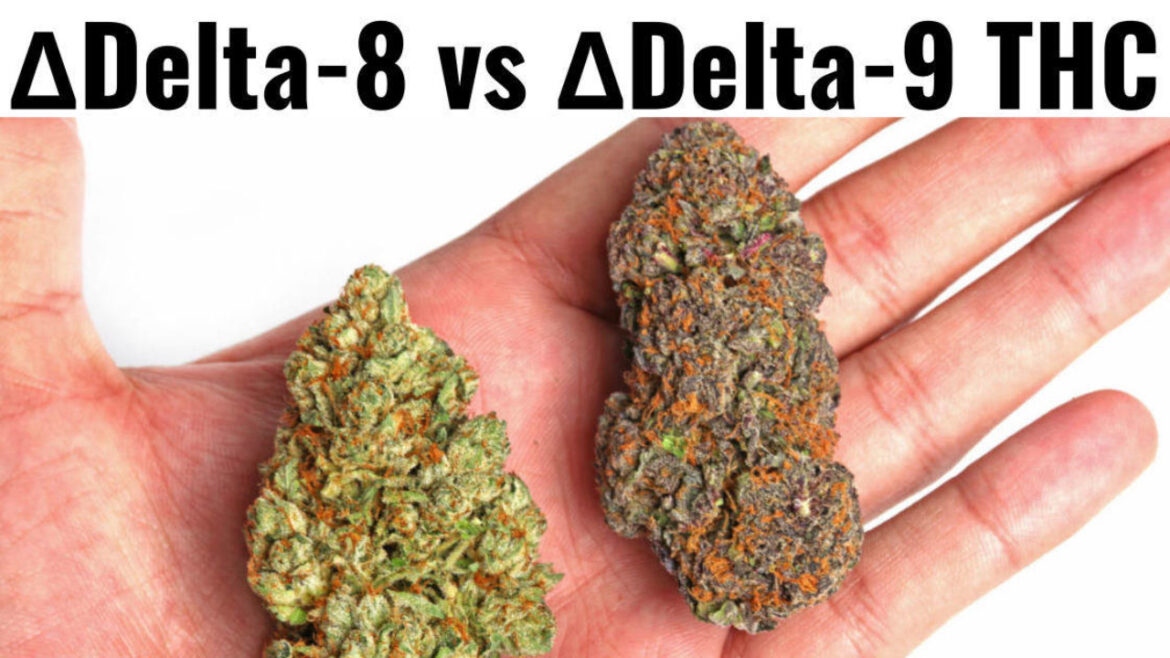SELECT THE WORDS & LEVEL
Delta 8 THC and Delta 9 THC are both found in the marijuana plant, but they are different compounds that each produce a unique effect.
Delta-nine THC is more psychoactive than delta-eight THC, and it has increased analgesic effects compared to other cannabinoids. It takes longer for delta-nine THC to be broken down by your body, which means that this compound will have higher blood levels of delta-nine when you consume edibles or smoke something with cannabis compared to regular smoking flowers.
This can lead people to use medical marijuana as an alternative treatment for cancer pain, appetite loss associated with AIDS wasting syndrome, chronic nausea caused by chemotherapy or radiation therapy treatments, etc. Today we will discuss the Difference Between Delta 8 THC and Delta 9 THC.
Delta 8 THC and Delta 9 THC: Effects And Differences
The effects of delta 8 products are similar to the psychoactive properties found in high doses of delta-nine THC, but they are weaker. Delta eight has anti-inflammatory and neuroprotective benefits, which can make it a great choice for people who suffer from inflammation or neurological conditions like Parkinson’s disease, Alzheimer’s disease, etc.
Delta 8 THC and Delta 9 THC: Products
Delta eight THC is most commonly found in its acid form, delta-eight THCA. It can be converted into delta-nine THC through the processes of decarboxylation or heat exposure which will activate the cannabinoids.
People looking for a more medical alternative to smoking marijuana may want to consider purchasing products that have high levels of both delta-nine and delta-eight. These include concentrates like Rick Simpson Oil™ (RSO) as well as edibles made with cannabis oil infusions rather than traditional butter or cooking oils infused with marijuana.
However, it’s important to note that under current federal law, it is illegal to sell and purchase these types of products anywhere within United States borders despite what individual state laws might say. The federal government currently still considers marijuana to be a Schedule I drug with no medical benefits and an extremely high potential for abuse.
Delta-nine THC is the more psychoactive form of delta-eight THC, but this doesn’t mean that you should avoid it entirely if your primary reason for using cannabis products is within the context of medicine. Delta nine can help treat people who suffer from chronic pain, muscle spasms caused by multiple sclerosis, or injuries like broken bones, etc., while also helping them achieve a sense of euphoria and tranquility that might make their experience feel more enjoyable overall.
However, it’s important to note that smoking flowers with higher levels of delta-nine may cause some people to feel overly sedated rather than euphoric depending on how much they smoke. This is actually a benefit for some people since it can help them sleep more soundly at night. Still, other patients may find that the sedative effects of delta-nine THC are too powerful, and they prefer to use products with lower concentrations (like RSO) instead.
Both Delta eight and nine have shown strong evidence in scientific studies, which has led many medical professionals to believe that marijuana-derived cannabinoids might be effective treatments for cancer patients suffering from extreme nausea and loss of appetite due to chemotherapy or radiation therapy treatment side effects.
However, until cannabis becomes rescheduled by the federal government, any research into these topics will remain limited by legal restrictions on how much cannabis-related material researchers can handle within their facilities.




